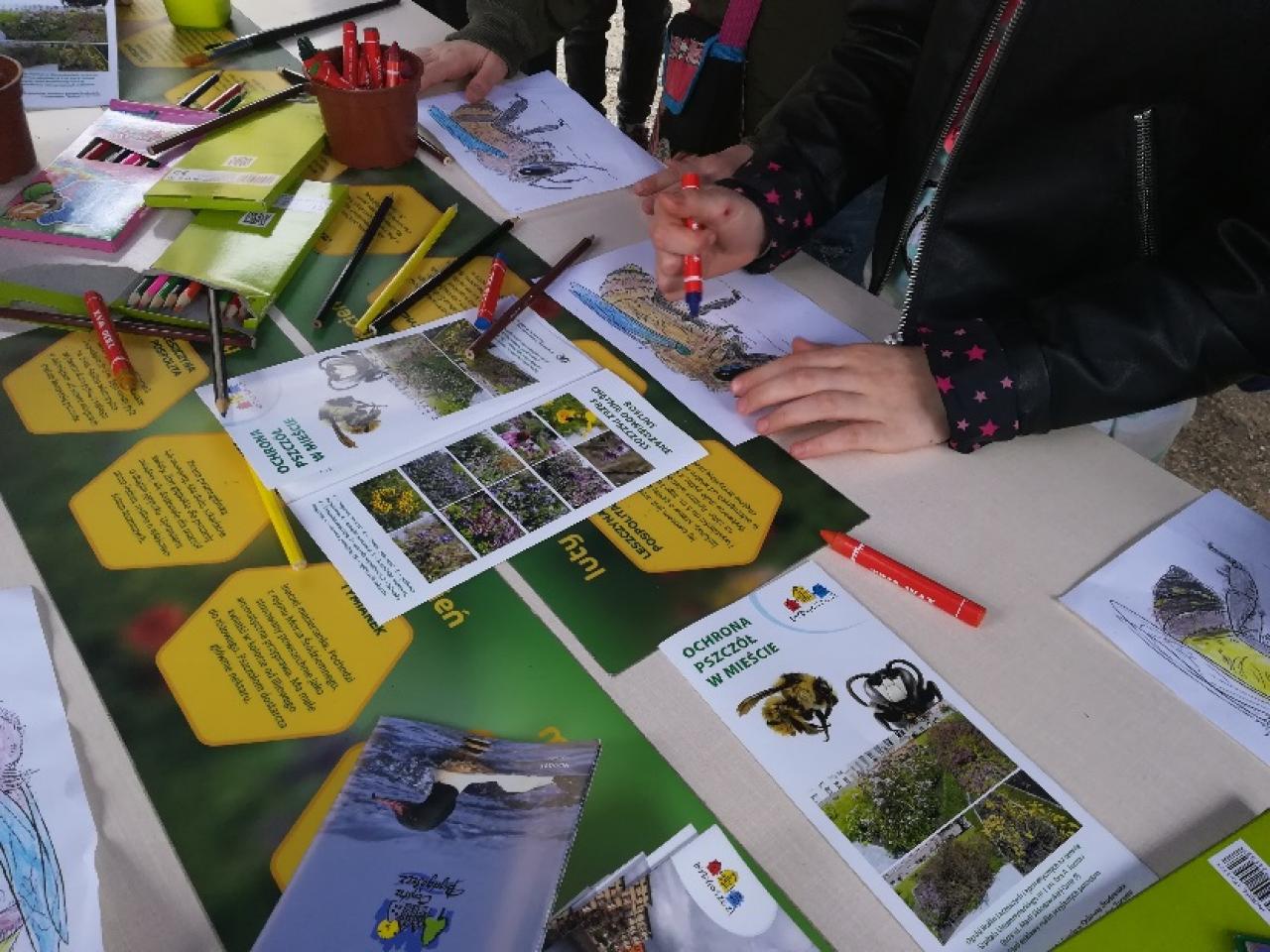
![]()
Read the article in any of the other 6 languages
![]()
It is a long and dynamic process to develop ecological awareness, and understanding of the importance of nature, for human beings. The process changes in line with the development of man and is dependent on the current individual characteristics, interests, as well as social factors. This is why it is very important to shape environmental awareness and sensitivity in children as early as possible, while their minds are not yet limited by social and cultural conditioning. The crucial moment for making citizens knowledgeable about the environment is in their early youth. Specifically, by teaching them a universal and appropriate behavioural mode towards nature. The next step in the development of ecological awareness is based on specific information concerning nature gained through teaching.
The basic goal of ecological education should focus on instilling the principle of “Primum non nocere” ("First, to do no harm”). The basis of this principle pertains with how to preserve and protect the richness of nature in our closest vicinity, especially in the areas with increased vulnerability due to human impact. The big question is how to achieve this goal?
Unfortunately, in most cases, the core school and kindergarten curricula devote little attention to these issues, i.e. the unique role of pollinators and their meaning in our lives. That is why teachers’ eco-initiatives are pivotal and the role of non-governmental organizations, botanical and zoological gardens, cultural centres and municipalities in the progressive approach to nature preservation
is crucial.
Workshops are one of the most valuable and effective teaching methods. Workshops on pollinators, including practical classes with a beekeeper, the opportunity to wear a beekeeper suit, observing a hive and the work of bees are always very popular amongst the youth — as direct experience consolidates knowledge.
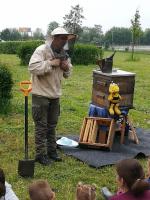
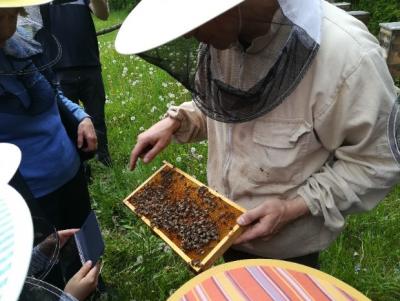
Class trips and field games are a great opportunity to spend time actively in the open air while exploring nature. These activities evoke a lot of emotions and amusement, especially the outdoor game called ‘Honey game’.
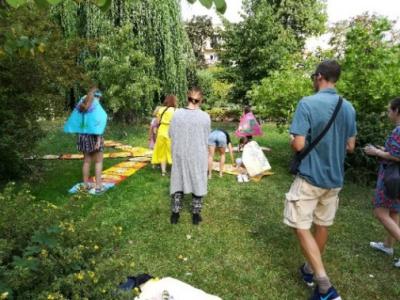
The celebration of ‘bee day’ festivities, combined with other attractions for children such as honey tasting, are a fabulous way to shape attitudes and build ecological awareness which is not only limited to children, but can apply to adults. Adults are eager to participate in discussions and take part in family outdoor games. It is very important for the person conducting classes to have knowledge of nature and be able to share it in a simple way, tailored to the needs and comprehension of listeners. An extremely valuable element of such meetings is just a simple conversation about nature.
Bee-watching is an attractive form of active recreation which is also a form of education. Classes can be conducted in the outdoor environment of city parks and squares. Furthermore, bee-watching can be combined with other activities such as macro photography, nature photography and drawing classes.
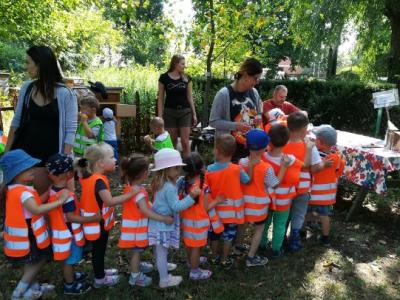
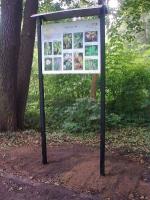
Nature paths outlined in green areas and forests, the use of instructive boards and captions, as well as guides containing detailed descriptions of natural values in a given area are a big didactic help.
It is very important that after determining a given path, workshops addressed to teachers to familiarize them on this path are required. The idea is to encourage teachers to go out into the field and to bring the topics covered on the path closer to their students.
School gardens, which may involve planting vegetation in pots, boxes and lawns can become an interesting tool and a place where you can learn about nature in a simple, direct and organized way.
When the weather is not conducive to being outside, indoor activities become an alternative.
In addition to discussions, educational videos, cartoons, crosswords, games, models and charts containing information on nature can be utilized. For teachers implementing educational programs, thematic work cards and lesson plans are available.
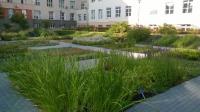
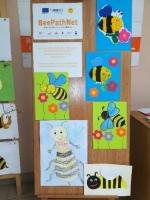
In Bydgoszcz, centres that are particularly active in running ecological education include: the Botanical Garden of the Kazimierz Wielki University in Bydgoszcz, Myślęcinek - the Forest Park of Culture and Recreation in Bydgoszcz, WSG University of Economy in Bydgoszcz and the Kuyavian-Pomeranian Ecological Education Centre. Educational institutions are involved in the process of nature education beyond the core curriculum. The best example is Primary School No. 45 in Bydgoszcz, which obtained funds from the Regional Fund for Environmental Protection and Water Management in Toruń for the construction of a school garden and a sensory path. This garden will be used for the needs of ecological education.
Justyna Olszewska, The City of Bydgoszcz
Photos: archive of the City of Bydgoszcz

